We all have a role to play in safeguarding our fundamental rights to water and sanitation, writes Professor Juliet Willetts from the Institute for Sustainable Futures.
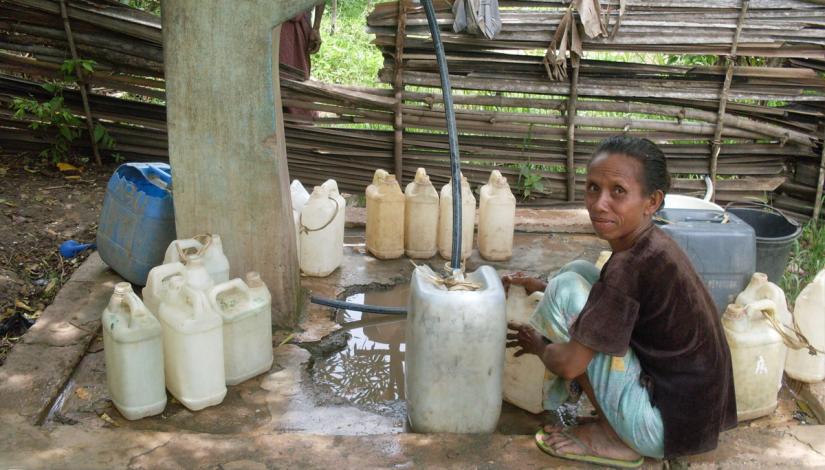
Resident in Ermera, Timor-Leste collecting water for her family. Photo credit: Juliet Willetts
Leave no-one behind: A short yet powerful phrase, but what does it mean? Until recently, improving water and sanitation access and management in low and middle-income countries focused on the low-hanging fruit - those who are easy to serve and can pay. Meeting the needs of poor, vulnerable or remote communities was a priority only for not-for-profit organisations or no one at all. This inherent bias ignored the fundamental human rights to water and sanitation of millions of people worldwide and impacted particularly on women. But putting the needs of the most marginalised first must now become the global water community’s core focus, as highlighted by Stockholm World Water Week’s theme this year.
Globally, sustainable water management has been hampered by a perception that water and other natural resources can be liberally exploited without consequence. This fallacy is being exposed as such, as climate change and other pressures increasingly weaken the ecosystems on which all life depends. Under the influence of the rapidly changing climate, water security and sanitation face even greater challenges. Can we, the global water community, rise to the occasion?
Putting the needs of the most marginalised first must now become the global water community’s core focus.
Professor Juliet Willetts
Institute for Sustainable Futures
The UTS Institute for Sustainable Futures’ International Development team partners with all stakeholders in the water debate - especially governments - to efficiently improve on the status quo. Research to us is part of a process of collectively developing solutions that fit within local frameworks and can be implemented from within. As a team, our strength lies in understanding, respecting, and bridging the large range of technical and social disciplines this requires. Through collaboration, we are able to prevent the paradox of solutions developed in isolation by one discipline (eg. engineering) from inadvertently exacerbating those addressed by another (e.g political science or public health). This can prevent engineers from planning wastewater treatment plants on the edges of cities while leaving toddlers to play next to faeces-filled drains in the dense, informal settlements of low-income areas.
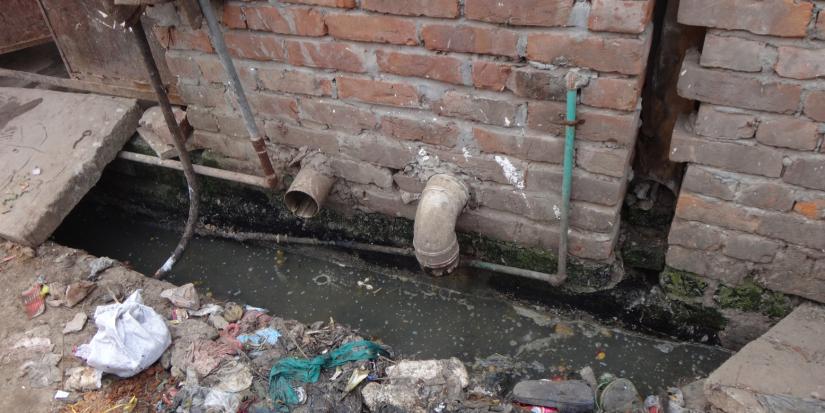
Open drains contaminated with faecal matter in low-income urban areas, Bangladesh. Photo credit: Juliet Willetts
Our current work in Dhaka, Bangladesh, brings together the most up-to-date DNA techniques for detecting dangerous bacteria and viruses like cholera and typhoid with relevant engineering and modelling expertise. This enables us to debunk the myth that common on-plot wastewater treatment technologies can sufficiently remove or inactivate pathogens, and allow more effective solutions to be considered. At the same time, we are exploring how unjust gender dynamics are preventing women from being valued and promoted in roles that support water and sanitation management in local government departments in Indonesia. One of our main objectives, Do No Harm, is to be sensitive to the underlying, sometimes invisible power dynamics that suppress marginalised voices, so that where possible our solutions can contribute to greater social and gender equality.
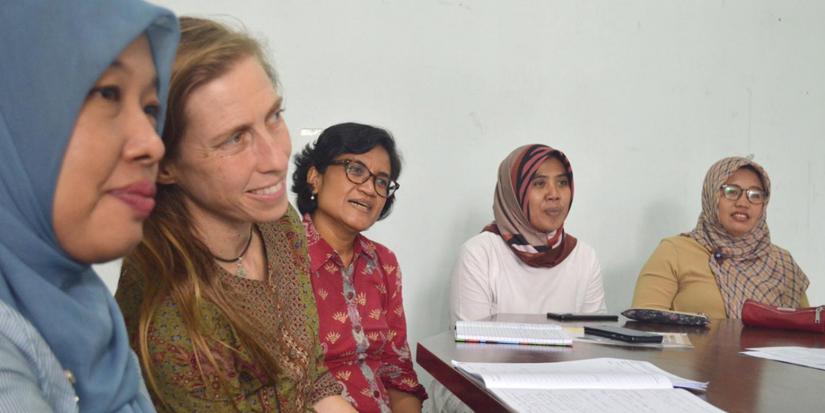
Professor Willetts working with research partners on issues relating to gender equality in the water and sanitation workforce, Indonesia. Photo credit: Simone Soeters
So where to from here? Can we work collectively to bring together research, policy, and advocacy to advance a new direction that takes into account not only the challenges of providing services to unserved millions but also tackles climate change risks and the environmental limits of our water and nutrient resources? Despite the scale of this challenge, we are making promising strides on several fronts.
One pressing issue is self-supply, where households faced with no other option develop their own access to water through rainwater or private wells. With more than 800 million people in Asia and the Pacific adopting this approach out of basic necessity, our new research seeks to shine a light on this unmonitored, unregulated and potentially harmful situation so that policy and practice can respond to minimise risks.
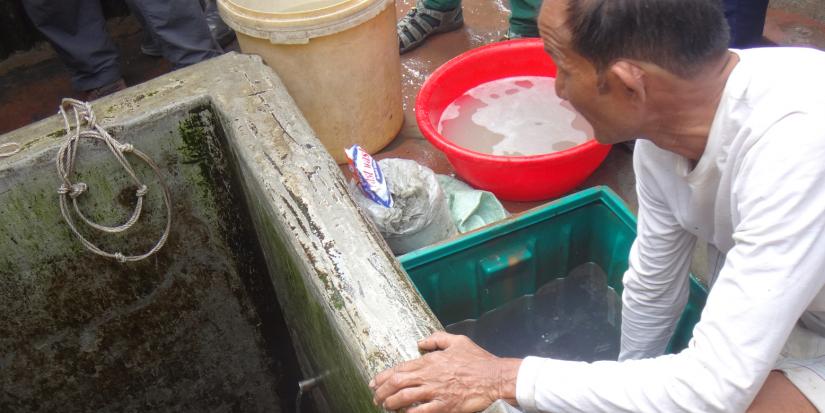
Resident in low-income urban area in Bangladesh with his self-developed water-supply. Photo credit: Juliet Willetts
We are also tackling the complex intersection of sanitation, climate change and environmental change. To date, climate change vulnerability assessments have focussed on water resources, and to a lesser extent on water services, while sanitation has been missing from the picture. Yet sanitation is significantly affected by climate change. Whether through storm damage to treatment facilities, or the flooding of septic tanks or pit latrines, the spread of raw sewerage can lead to disease outbreaks and needs to be addressed. Conversely, no water to flush a water-flushing toilet can also render sanitation useless. Both of these possibilities mean that sanitation requires particular attention in relation to climate futures. We are working with governments and international agencies on strategies and guidelines to integrate climate change thinking early rather than too late, including a holistic view that considers health, nutrient recycling, and livelihoods in combination with technical policy and planning solutions.
As we mature as a research group and develop our skills in research supervision and capacity-building, we are increasingly shifting gear to a greater focus on ‘facilitating’ rather than ‘doing’. Supporting researchers from low- and middle-income countries to lead transdisciplinary research of their own is a new frontier in most of these countries, where traditional disciplinary lines are followed and close engagement with policy-makers, practitioners, and real-life situations are not typical features of research practice. For us, this means working in mutually beneficial partnerships and expanding the role of UTS as a university that takes its public purpose seriously in our region. Only with the combined power of expertise in multiple disciplines and close engagement with communities, industry and government can the essential changes needed to ‘leave no one behind’ be achieved.
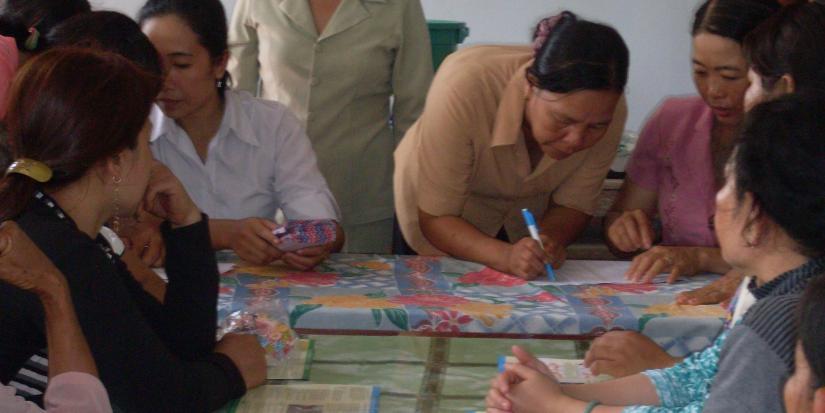
In an effort to ‘leave no one behind’, women from the Mekong receive a rebate on their toilet purchases through East Meets West Foundation, Viet Nam. Photo credit: Juliet Willetts
Professor Juliet Willetts is a research Director at the UTS Institute for Sustainable Futures. She is an expert in the field of water and sanitation in developing country contexts. Find out more about the team's recent work and see their contributions to upcoming debates at Stockholm.

